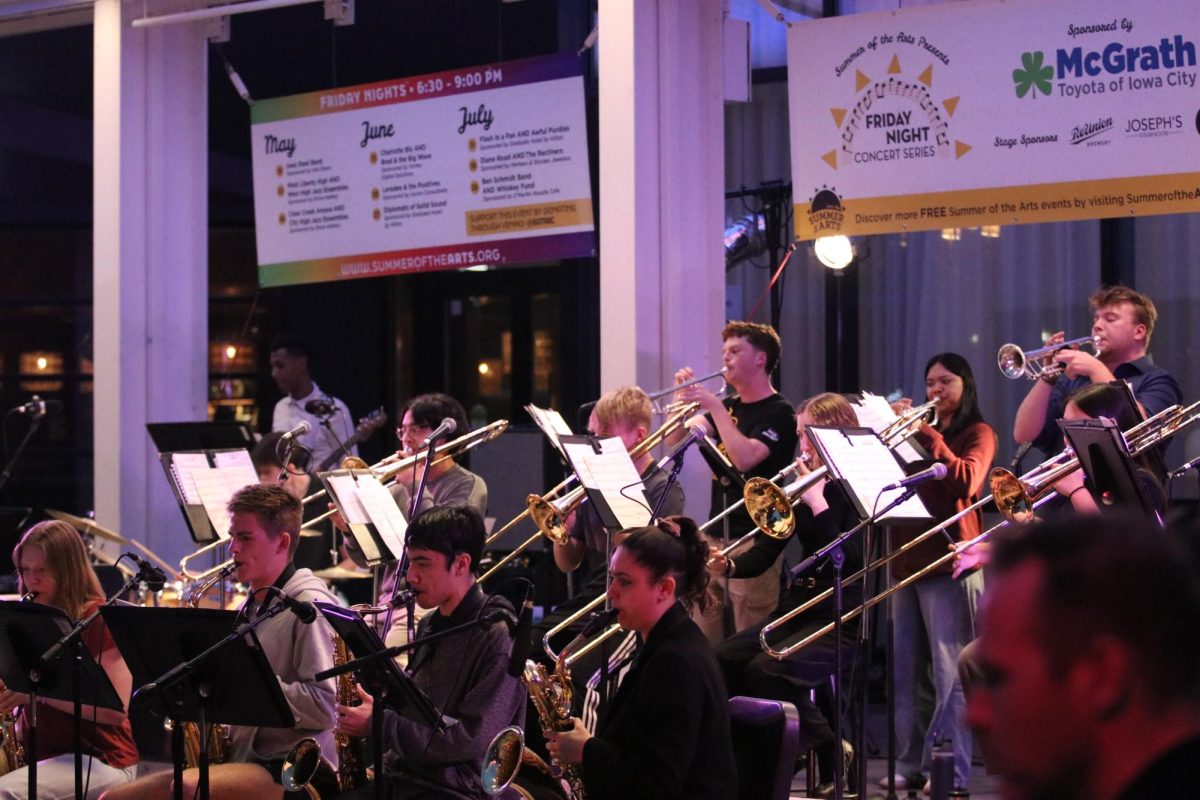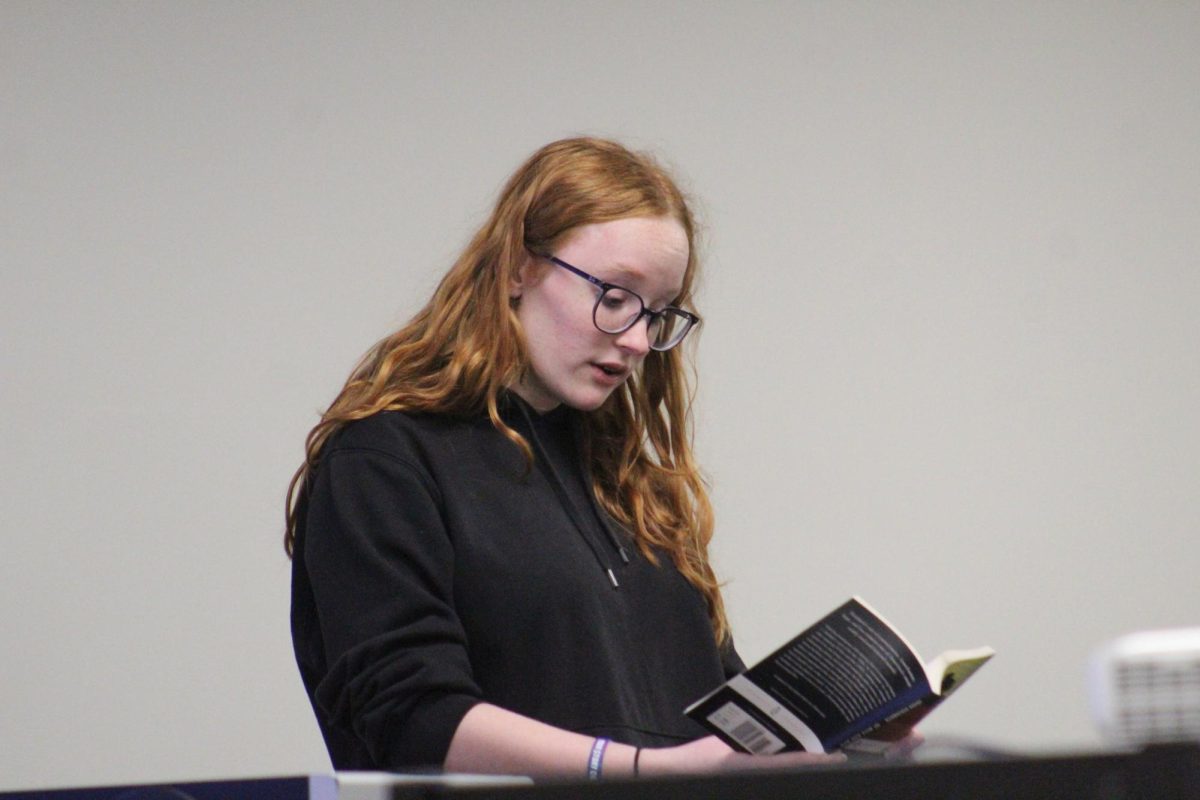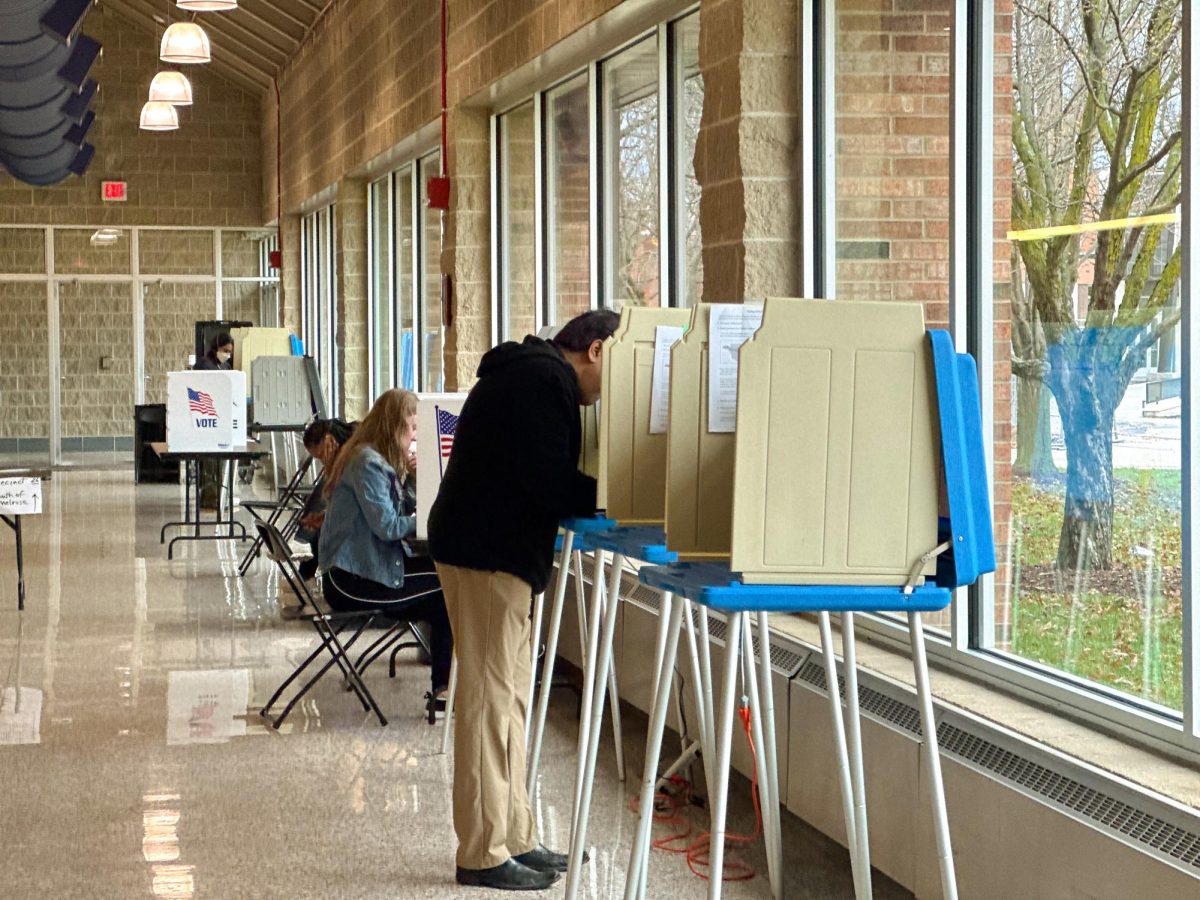On Jan. 8, Iowa legislators returned to the capital for the beginning of Iowa’s 2024 legislative session.
This is a time devoted to making laws, and the process in which this happens varies across the nation. Some state legislatures only meet during part of the year, some meet throughout the whole year and others only meet in odd years.
In Iowa, the legislative session begins on Jan. 8 and is scheduled to adjourn on April 16. The scheduled adjournment date is not always final; last year’s session extended six days beyond the planned date.
Within the session, separate committees of legislators are in charge of writing and reviewing bills in specific categories. There were 36 committees at the beginning of last year’s session that were in charge of topics such as education, commerce, Human Resources and public safety.
Many bills are passed within a session. That process is relatively simple.
First, a bill gets introduced and then goes to the corresponding committee for consideration. The bills must be passed through a subcommittee to reach the full committee.
If the bill gets passed through one chamber, the House or the Senate, it goes through the same process in the other. After that, it goes to the governor for them to sign. If the bill is vetoed, the legislature can override it with a two-thirds majority vote.
Reynolds’ Conditions of the State Address
In her annual Conditions of the State address, Iowa Governor Kim Reynolds outlined her priorities for the session.
One of the first things she discussed was the state’s Area Educational Agencies. There are nine AEAs in Iowa, the ICCSD’s is Grant Wood AEA, and they are responsible for supporting students with disabilities and special needs. Reynolds proposed that instead of directly sending state and federal funding to the AEAs, schools would get to decide how to use that money.
This could mean using a different AEA instead or not using the system and getting a speech and behavioral therapist to share between schools. This proposal would also ban AEAs from providing other services outside of special education; Reynolds said AEAs have gone far beyond their mission of providing support to special education students. Under her proposal, AEAs “will focus solely on students with disabilities, as they should.”
Democrats are concerned that this will mean AEAs cannot provide the same support to communities as they do now and are concerned about how this will affect rural Iowa. For example, after the shooting in Perry, Iowa, AEA staff offered support to the community.
Reynolds also proposed increasing starting teacher pay to $50,000 and a new literacy program. The literacy program would require elementary school teachers to be taught evidence-based instruction about the “science of reading” and to hold conferences with parents of children who are not proficient in reading at the end of third grade to decide whether they should retake the grade the following year.
She also referenced the special session held over abortion in July of last year, saying it was “an act of courage and conviction that will ultimately save precious lives.”
For reference, a special session is several days outside the regular legislative session, where the legislature meets over specific issues or topics requiring discussion. The way these are called varies across the nation. In Iowa, two-thirds of the members of each house are required to call a session. The governor also has this ability. These sessions have no specific timing, and there are no limits on the amount that can be called.
At the session over abortion, a law passed that banned most abortions after cardiac activity can be detected, around six weeks of pregnancy — a time when most people do not know they are pregnant. A judge temporarily blocked the law, so Iowa’s 20-week ban is currently in place until the court decides.
What else will be covered this year?
According to Iowa Capital Dispatch, legislative leaders plan on focusing on higher education, tax cuts and nursing homes this year. They also wrote that Democrats’ goals for the session are to up the funding of public schools and to give marginalized students, such as LGBTQ+ youth and students with disabilities, more support.
Several anti-LGBTQ+ bills were passed last year, among them SF 496. This controversial bill primarily focused on education and included book bans, bans on discussing sexual orientation and gender identity in grades K-6 and required parent/guardian notification if their child requests to use a different name or pronouns at school.
In late December, a federal judge temporarily blocked two parts of this law: the book ban on anything containing sex acts and the ban on education about sexual orientation and gender identity in grades K-6.
This year, almost thirty anti-LGBTQ+ laws have been introduced. One Iowa has an anti-LGBTQ+ legislation tracker that keeps up-to-date with these bills being introduced.
Among those currently introduced are two bills that One Iowa deemed to have a high threat level. One stops state colleges and universities from spending money on diversity, equity and inclusion programs; the other stops insurance companies and healthcare providers from providing care on the basis of “sincerely held beliefs.” This would allow insurance and healthcare providers to refuse care to LGBTQ+ people if they say it violates their religious beliefs or moral convictions.
In an interview with Iowa Starting Line, House Minority Leader Jennifer Konfrst outlined more of the Democrats’ goals for the session. Among these are addressing the pay for child-care workers along with ensuring a greater amount of affordable child-care slots, a constitutional amendment protecting abortion rights and over-the-counter birth control availability along with making postpartum Medicaid coverage 12 months instead of the 60 days currently required by law (which Reynolds proposed to the legislature).
How to get involved
There are multiple ways to get involved as an Iowan during the session.
Bill-tracking websites are a great tool to follow bills being proposed, reviewed and passed. Iowa’s official website allows one to view bills and the legislative action taken that day. NCSL’s database is another more user-friendly option, having one search by topic first to narrow down what legislation they want to find.
Writing to a representative can be a way to influence decisions made in government both as a registered voter and someone who is not. These letters are recommended to be concise and personalized and are seen as not just the voice of one but a representation of the opinions of many. Letters can be in opposition or support of a bill, both are important.
Since the assigned legislator depends on location, use the “find your legislator” website to know who to write to. Iowa City’s representatives are Zach Wahls and Janice Weiner in the Senate and Amy Nielsen, Elinor A. Levin, David Jacoby and Adam Zabner in the House.































